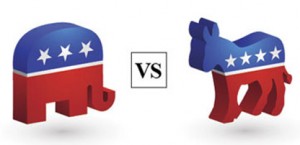President Obama is desperately trying to convince the public his policies prevented a looming depression that would have devastated our economy. This is more than an uphill battle because as everyone is saying, you just can’t prove a negative. That is, you have no way to show what would have happened if you hadn’t done what you did.
On Tuesday’s episode of Countdown with Keith Olbermann, Olbermann offered a special comment on a different topic which contained an interesting insight. President Bush had great success at proving the negative case that his policies prevented another terrorist attack (clip showing this point below). Now Olbermann went on to blame others for this (full video available here), but there is a more interesting point to be gleaned.
Visit msnbc.com for breaking news, world news, and news about the economy
Ignoring the questions of whether Obama actually prevented a depression and whether Bush actually prevented another terrorist attack, let’s examine only the public perception. The simple fact is, there were no more significant domestic terror incidents while Bush was proving his negative. Consider instead what would have happened had there continued to be one or two attacks each year, resulting in hundreds of deaths each. It may well have been that without the Bush policies those attacks would have numbered a dozen a year, but it wouldn’t have mattered. He never would have sold his story. He likely never would have gotten reelected.
This is the reason Obama fails to prove his negative on the economy. Had we bounced in 3 months back to 2007 levels of unemployment and the Dow hit 14,000 again, then he could sell his success story. But while he may well have prevented devastation, he did not keep us from suffering. And as long as the pain continues,the public will not accept his proof.

